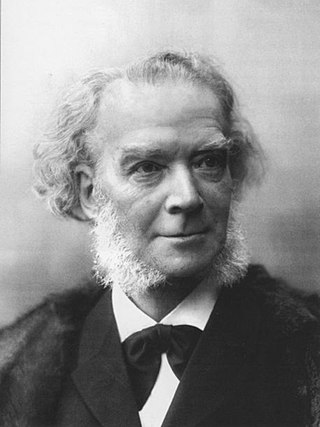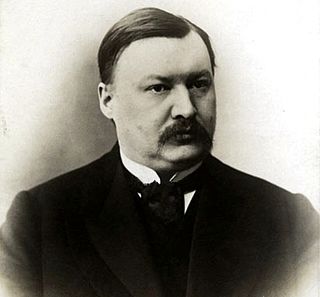Related Research Articles
A concerto is, from the late Baroque era, mostly understood as an instrumental composition, written for one or more soloists accompanied by an orchestra or other ensemble. The typical three-movement structure, a slow movement preceded and followed by fast movements, became a standard from the early 18th century.

Edward Elgar's Cello Concerto in E minor, Op. 85, his last major completed work, is a cornerstone of the solo cello repertoire. Elgar composed it in the aftermath of the First World War, when his music had already become out of fashion with the concert-going public. In contrast with Elgar's earlier Violin Concerto, which is lyrical and passionate, the Cello Concerto is for the most part contemplative and elegiac.

Carl Heinrich Carsten Reinecke was a German composer, conductor, and pianist in the mid-Romantic era.

The Piano Concerto No. 2 in C minor, Op. 18, is a concerto for piano and orchestra composed by Sergei Rachmaninoff between June 1900 and April 1901. The piece established his fame as a concerto composer and is one of his most enduringly popular pieces.

The Violin Concerto in A minor, Op. 82, by Alexander Glazunov is one of his most popular compositions. Written in 1904, the concerto was dedicated to violinist Leopold Auer, who gave the first performance at a Russian Musical Society concert in Saint Petersburg on 15 February 1905. The British premiere of the concerto followed just over a year later, under the direction of Sir Henry Wood and with Mischa Elman as soloist. The American premiere of the work was not until 27 October 1911. It was performed by Efrem Zimbalist at his American debut with the Boston Symphony Orchestra.
The Concerto in A minor for Oboe and Strings was written by Ralph Vaughan Williams in 1943–44 for the oboist Léon Goossens, to whom the score is dedicated.

The Études-Tableaux, Op. 39, is the second of two sets of piano études composed by Sergei Rachmaninoff. Op. 39 was composed sometime between 1916 and 1917 and were among the final works composed by Rachmaninoff before his exit from Russia.

The Concerto for Flute, Harp, and Orchestra in C major, K. 299/297c, is a concerto by Wolfgang Amadeus Mozart for flute, harp, and orchestra. It is one of only two true double concertos that he wrote, as well as the only piece of music by Mozart for the harp. The piece is one of the most popular such concertos in the repertoire, as well as often being found on recordings dedicated to either one of its featured instruments.
The Symphony No. 3 by Arnold Bax was completed in 1929. It was dedicated to Sir Henry Wood and is perhaps the most performed and most immediately approachable of Bax's symphonies.
The Strathclyde Concertos are a series of ten orchestral works by the English composer Sir Peter Maxwell Davies.

The Cello Concerto No. 1, Op. 50, was composed by Heitor Villa-Lobos in 1913 as his first large-scale work, showing the influence of Tchaikovsky.
Benjamin Britten's Violin Concerto, Op. 15, was written from 1938 to 1939 and dedicated to Henry Boys, his former teacher at the Royal College of Music. Britten worked on it while staying with Aaron Copland and completed it in Quebec. It was premiered in New York on 29 March 1940 by the Spanish violinist Antonio Brosa with the New York Philharmonic conducted by John Barbirolli. A year after its first performance in New York, the concerto was performed for the first time in England at Queen’s Hall on 6 April 1941. It was conducted by Basil Cameron, and the soloist was Thomas Matthews, leader of the London Philharmonic Orchestra. It received its first broadcast performance with the BBC Orchestra, conducted by Clarence Raybould and Thomas Matthews as soloist, on 28 April 1941.
The Flute Concerto is a concerto for flute and orchestra by American composer Christopher Rouse. The work was jointly commissioned by Richard and Jody Nordlof for flautist Carol Wincenc and by Borders Group for the Detroit Symphony Orchestra. It was completed August 15, 1993 and premiered on October 27, 1994 at Orchestra Hall in Detroit, with conductor Hans Vonk leading Carol Wincenc and the Detroit Symphony Orchestra. The piece's third movement is dedicated to the memory of James Bulger, an English toddler who was murdered in 1993 by two ten-year-old boys.
The Piano Concerto in C-sharp minor, Op. 45, is a composition for solo piano and orchestra in four movements by the American composer Amy Beach. The work was composed between September 1898 and September 1899. It was first performed in Boston on April 7, 1900, with the composer as the soloist and the Boston Symphony Orchestra performing under the conductor Wilhelm Gericke. The composition is dedicated to the musician Teresa Carreño and was the first piano concerto by an American female composer.
The Boston Concerto is a concerto for orchestra by the American composer Elliott Carter. The work was commissioned by the Boston Symphony Orchestra, for which the piece is titled. It was first performed in Symphony Hall, Boston, on April 3, 2003 by the Boston Symphony Orchestra under the conductor Ingo Metzmacher. Carter dedicated the concerto to his wife Helen Jones Carter, who died on May 17, 2003.
The Cello Concerto is a composition for solo cello and orchestra by the American composer Elliott Carter. The work was commissioned by the Chicago Symphony Orchestra for the cellist Yo-Yo Ma. It was first performed in Chicago, Illinois, on September 27, 2001 by Yo-Yo Ma and the Chicago Symphony Orchestra under the conductor Daniel Barenboim.
The Concerto for Piano and Orchestra is a musical composition by the American composer Aaron Copland. The work was commissioned by the conductor Serge Koussevitzky who was then music director of the Boston Symphony Orchestra. It was first performed on January 28, 1927, by the Boston Symphony Orchestra conducted by Koussevitzky with the composer himself as the soloist. The piece is dedicated to Copland's patron Alma Morgenthau Wertheim.

Requiem is a setting of the Latin Mass for the dead for four soloists, mixed choir, orchestra and organ by Frank Martin. Composed in 1971 and 1972, it was premiered at Lausanne Cathedral on 4 May 1973, with the composer conducting the Orchestre de la Suisse Romande. It has been described as the composer's masterpiece.
References
- 1 2 Anderson, Keith (2006). REINECKE: Flute Concerto / Harp Concerto / Ballade (CD liner). Naxos Records . Retrieved May 10, 2016.
- ↑ Norris, Geoffrey (November 2013). "REINECKE; NIELSEN Flute Concertos: Bezaly in The Hague for concertante flute works". Gramophone . Retrieved May 10, 2016.
- ↑ Rockwell, John (June 1, 1981). "Philarmonic: Romantics with Galaway as Soloist". The New York Times . Retrieved May 10, 2016.
- ↑ Dervan, Michael (August 11, 2006). "Classical: Latest CD releases reviewed". The Irish Times . Retrieved May 10, 2016.